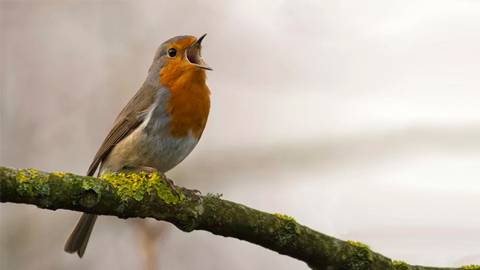The Phantom Chorus: Birdsong Boosts Human Well-Being in Protected Areas

Time spent in nature can help us feel happier and healthier, but it's not just from the fresh air and exercise. All of our senses are involved in the experience—sight, touch, smells and sound. In a world of changing natural environments, scientists are working hard to pinpoint how, exactly, natural environments feed our senses.
In a recently published paper, researchers Danielle Ferraro, Dr. Zachary Miller and others showed that the sound of birdsong increased perceived psychological restoration – a type of mental well-being – for hikers. They used a "phantom chorus" of birdsong consisting of hidden speakers to artificially increase the audible bird biodiversity on two trails. Hikers exposed to a more biodiverse sound reported higher levels of restorative effects compared to others. These findings add to a growing body of evidence linking human well-being to natural experiences and suggest that natural soundscapes are an important way that outdoor recreation helps people feel "restored" after an experience in a natural environment.
"Maintaining or improving natural soundscapes within protected areas helps provide essential well-being services to people," said Miller. "Even more amazing is that it only takes a few minutes of exposure to birdsong for people to feel better. Go outside – it is good for you."

